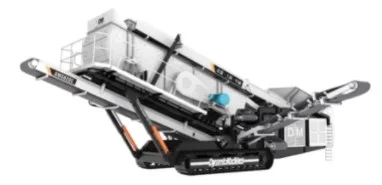The Versatility of Impact Crushing Technology
In a Mobile Impact Crusher Factory, one of the key advantages lies in the versatility of the equipment. Mobile impact crushers are engineered to handle a wide spectrum of materials, from natural rock to industrial waste, making them valuable in mining, construction, and recycling applications. Their design focuses on combining mobility, high reduction ratios, and adjustable output control, allowing them to adapt to different hardness levels and material compositions without extensive reconfiguration. This flexibility ensures efficient crushing across various industries with minimal downtime.
Suitable Natural Stone Materials
Mobile impact crushers are highly effective for processing medium-hard to soft natural stones such as limestone, dolomite, sandstone, and gypsum. These materials fracture easily under impact energy, allowing the machine to produce uniform and well-shaped aggregates with minimal energy consumption. The adjustable rotor speed and impact plate configuration make it possible to fine-tune the output size for different end uses, such as concrete production, road sub-base layers, or cement manufacturing. When dealing with harder stones like granite or basalt, the machine can still operate efficiently if equipped with wear-resistant blow bars and reinforced liners to withstand the higher impact forces.
Handling Construction and Demolition Waste
Another major field where mobile impact crushers excel is in recycling concrete, asphalt, and brick debris from demolition projects. The high-speed rotor efficiently breaks down reinforced concrete, separating steel rebar and producing reusable aggregate. Asphalt recycling is particularly effective, as the impact process restores the original grain size of the material, allowing it to be reincorporated into new pavement mixes. By converting waste into valuable resources on-site, the crusher reduces transportation costs and supports sustainable construction practices.
Processing Industrial and Secondary Materials
Beyond natural stones and construction debris, these crushers can also handle secondary materials such as slag, coal, and glass. In steel and cement plants, slag crushing transforms waste by-products into usable aggregates for road construction. For coal and similar friable materials, the adjustable impact energy allows fine control over particle size without generating excessive dust. Even brittle materials like recycled glass can be efficiently reduced, turning them into raw inputs for insulation products or glass aggregates. This adaptability demonstrates the wide operational scope of impact crushers across industrial sectors.
The range of materials that can be processed by mobile impact crushers is remarkably broad, encompassing soft limestone, robust granite, recycled concrete, asphalt, and various industrial by-products. Their efficiency stems from a combination of adjustable mechanical design, controlled impact energy, and easy mobility. Whether used in quarries, recycling yards, or urban construction sites, these machines consistently deliver high-quality aggregates and contribute to more sustainable material use. This versatility ensures that mobile impact crushers remain an essential solution for modern crushing operations across multiple industries.
Feed Particle Size: ≤600mm
Processing Capacity: 80-360t/h
Machinery Weight: 53-62t






